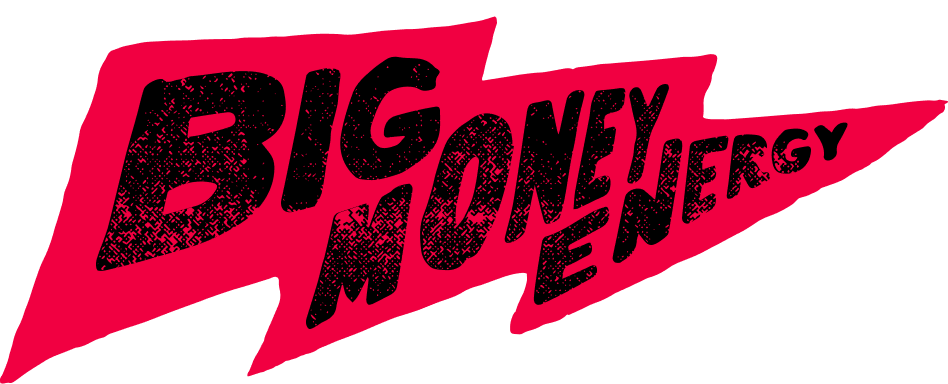
Owning a business that brings you money, freedom, and maybe even prestige is the American Dream. It’s a joy to see something grow before your very eyes.
But when you think about the fact that 1 in 5 new businesses fail in the 1st year and up to 45% fail within 5 years, that dream can turn into a nightmare.
Pro tip: investing in established and proven businesses reduces your chances of failure big time.
Too many people overlook the best options when investing in a business.
Boring businesses are less sexy than industries like crypto or the latest software.
But don’t get us wrong, boring businesses are a necessity, and they have cashflow.
Things like lawn care services, laundromats, car washes, window cleaning, and so many more can run with very little stress on your end. You can even hire an operator to partner with or run things on their own.
When you buy a business, you step right into something that already works.
You’ve got 2 options when it comes to investing in a small business. The first is to find one that’s operational and buy in as a partner. The second is to buy the business outright and either run it yourself or (our recommendation) hire an operator to run it for you.
Both options work, but the second means you have more control over the direction of the business and have a bigger piece of the pie.
Here are 12 of our favorites with high ROI potential, along with insights on what makes them great buys.
1. Laundromats
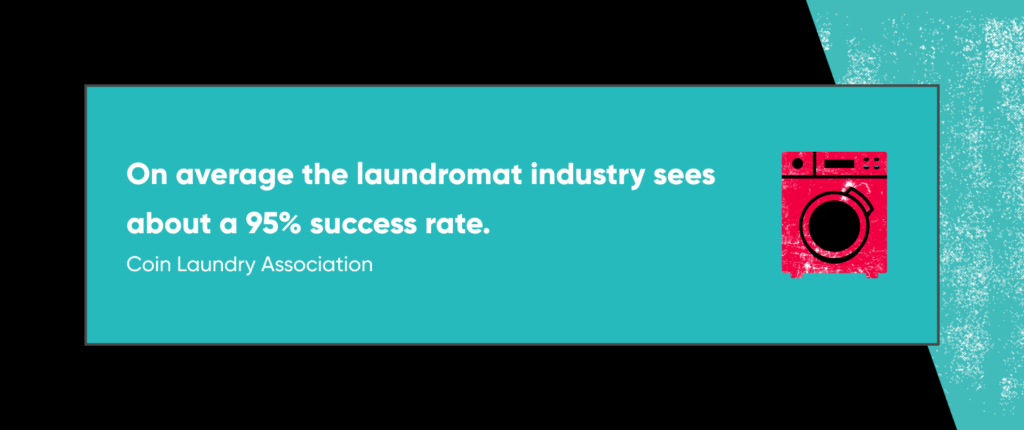
Wash, rinse, repeat. For Americans without home washers and dryers, laundromats are a lifesaver. They make it so simple to wash all your loads at once and cross laundry off the to-do list for another week.
And they’re an upfront cash business. Your customers do all the work paying for the machines, washing the laundry, and hauling it in and out.
You hardly need any staff, and it’s completely possible to hire an operator onsite to manage the day-to-day for you. Buying a laundromat is a perfect way to avoid those massive upfront equipment buying costs, too.
2. Real Estate
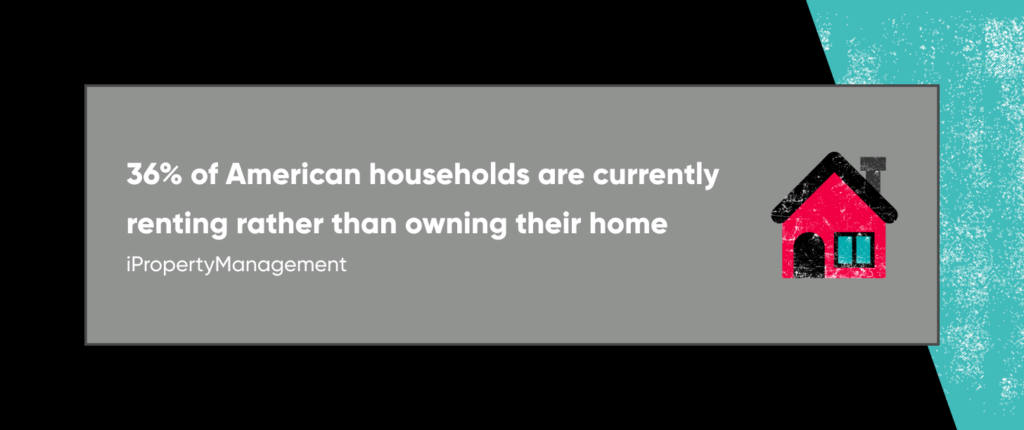
Up to 90% of today’s millionaires share one thing in common: they all thing some of the best businesses to invest in are real estate.
Think about it. This avenue comes with:
- Growth/appreciation potential
- Hands-off management (you don’t need to live in the same city or even state as your property)
- There are multiple ways to earn based on your passions and preferences
- The U.S. tax code provides advantages for real estate owners
We’re not just talking about buying and selling homes or commercial properties either.
You could invest in RV parks or buy a campground and rent out spaces there. You can purchase a mobile home community. Or you can start your own tiny home/AirBnB business.
3. Self-Storage
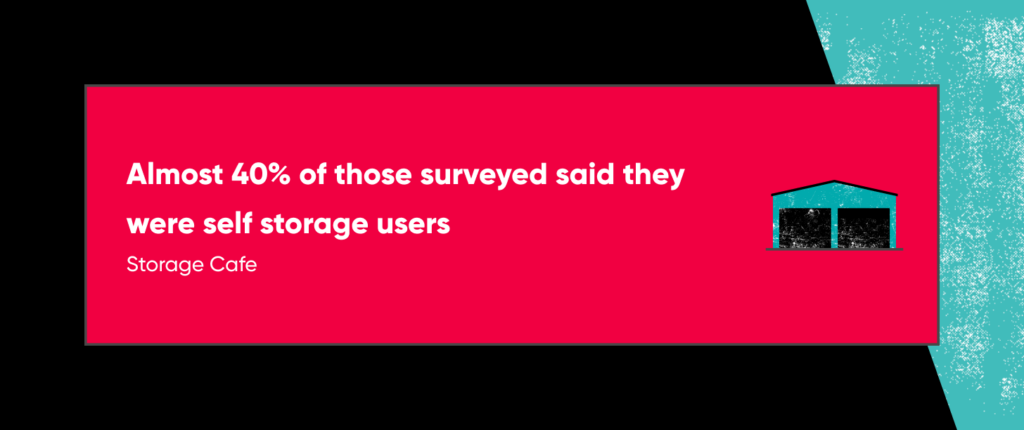
Despite the rising average size of the American home, by all accounts, it’s not enough to store everyone’s stuff.
Close to 40% of Americans rent self-storage spaces. With a big enough population nearby, you can run this simple and yet profitable boring business.
By buying a self-storage company, you get the benefit of already-built facilities. With a good operator, strong systems, and security, you can run this business from out of state or even out of country.
4. Vending
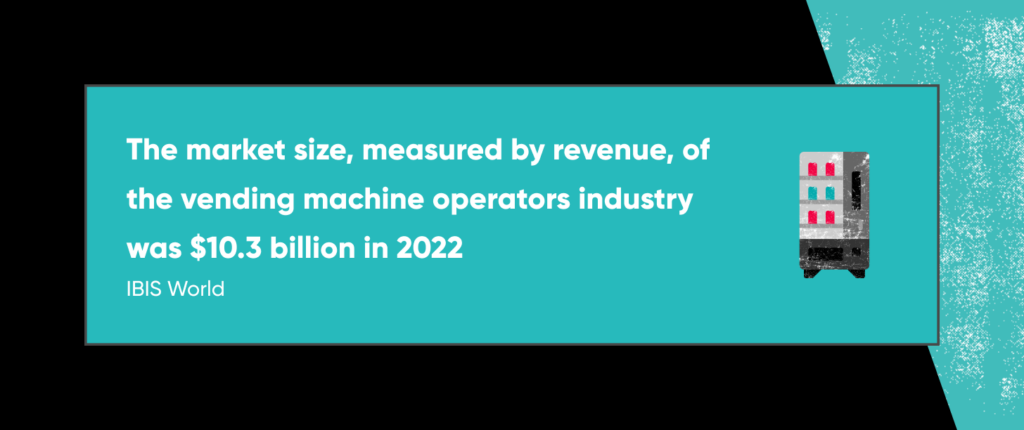
Money goes in, products fall out. Every so often, you need to empty the money from your vending machine and restock it.
Could a business idea get any simpler?
Vending machines remain in high demand because of the convenience they offer. Whether it’s traditional snack vending machines or specialized options like ice vending, you can refill these every so often but don’t have to spend tons of time managing marketing or operations.
5. Senior Care Centers

Someone turning 65 today has a 70% chance of needing senior care at some point in their future.
There’s a reason that senior care centers are businesses that never fail: demand is huge. The government also subsidizes these programs because the demographics and demand call for quality care.
And with baby boomers making up over 20% of the U.S. population, many of them now retiring and entering their golden years, demand for senior care will grow.
If you don’t want a huge facility, you can check that a home has the right zoning for assisted living. You can also buy a senior care center to improve an existing facility.
6. Car Washes

No matter how much you clean your car, you always need to hit up the car wash in the future.
Car washes make money from one-time washes as well as subscriptions. Most of them use tiered pricing, with basic washes costing around $10 and going up from there for things like waxing.
Buying a car wash puts you in the driver’s seat without spending a ton of initial cash to buy costly wash equipment.
With almost 300 million vehicles on the road and only 60,000 car washes open, there’s a huge business opportunity to service people through car washes.
If you want a real-life example of the power of this business model, look no further than Hannah Ingram.
She makes over $7,000 a month with her car wash business. Hannah dropped out of college, and landed on buying a car wash. She cold-called to ask people if they wanted to sell and partnered with a local realtor.
Check out more of her advice:
7. Plumbing Services
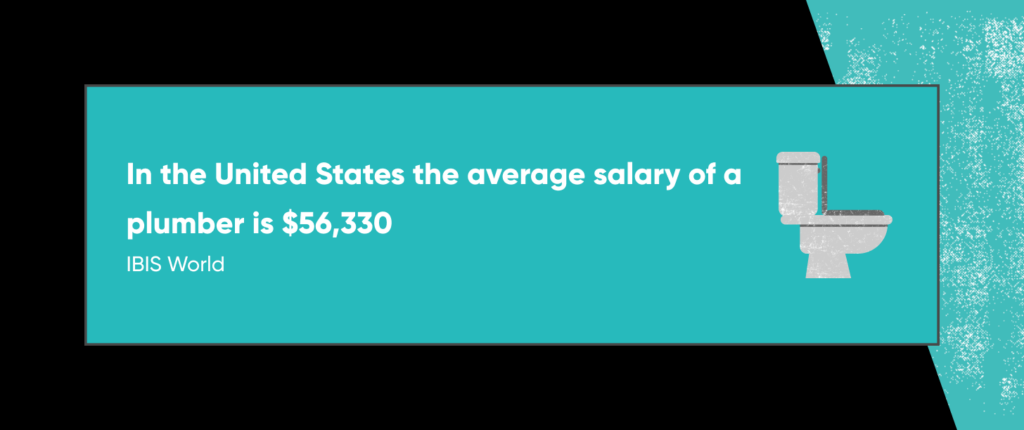
At least 10% of Americans need a plumber every single year.
Sounds like a great service to offer in a business, right?
But if you want to start your own plumbing business, you’d need advanced training to know how to diagnose and troubleshoot a broad range of actual plumbing issues.
Buy into a plumbing company instead to get all the trained staff in place.
8. HVAC Services

Much like plumbing, HVAC tech needs frequent servicing. And people have to replace their furnaces and air conditioners after regular use, too.
You could even combine a plumbing business with an HVAC company to provide more in-home support in your region to make more from each customer.
But like plumbing, if you don’t know how to repair heating and cooling equipment, you need someone who does.
Instead of going back to school and learning HVAC on your own, buy a set-up heating and cooling company and use their current staff to handle service calls.
9. Solar Panel Installation
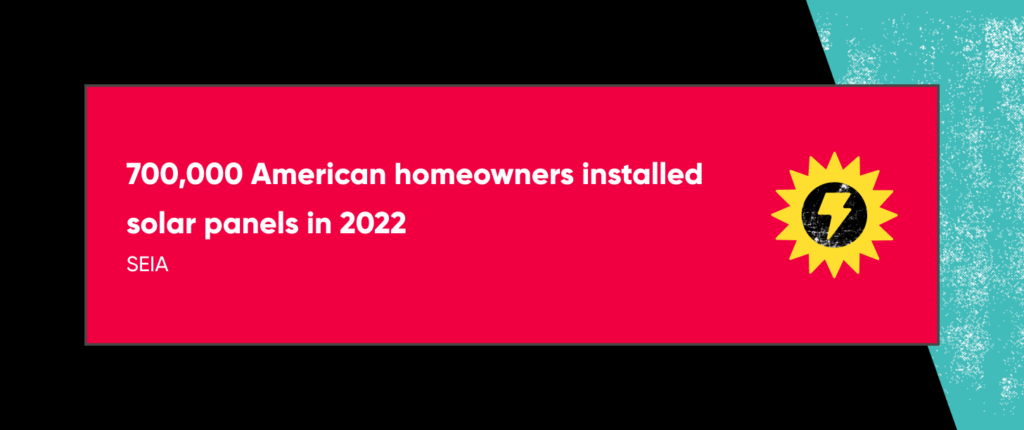
Electric prices have gone up by over 14% year over year recently, and Americans are sick of it. Match that with the fact that the government at the federal and state level subsidizes going solar, and you’ve got a solid business idea on your hands.
Solar installation is technical but also in high demand.
Instead of trying to figure it all out on your own, you can offer solar quotes and installation by buying someone else’s established solar business.
10. Heavy Equipment Rental
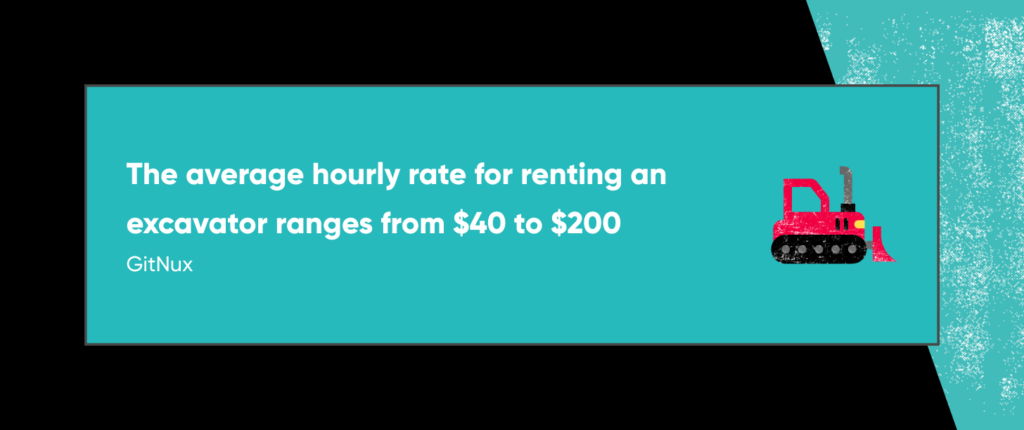
Who hasn’t wanted to drive a forklift or play with a stump grinder?
What about owning a full fleet of them that you rent out to others?
A heavy equipment rental company is a great business to invest in since you pay for the equipment once but earn returns every time you rent it out.
Side note: Heavy equipment isn’t the only game in town when it comes to rental. Party rental businesses are lucrative. And renting out things photography or videography equipment can rake in the big busk in the right area.
11. Excavation Businesses

Speaking of equipment that’s fun to play with, an excavation business makes it profitable to play in the dirt.
If you can find someone else with the tools, you can buy their excavation business from them and start making money on projects from the day you take over.
Excavation projects run from $1500-6000 apiece, so if you keep your equipment in the field as much as possible, you’ll make bank.
12. Dump Truck Businesses
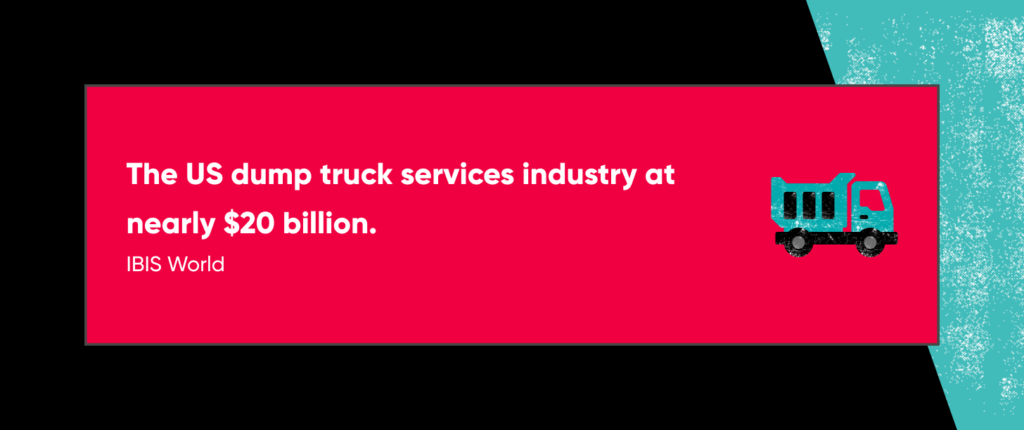
The construction industry is booming and will continue to grow in the coming years, too. But what about getting rid of all the debris or moving things to a work site?
That’s where dump trucks come into the picture. You can start a dump truck business with just one vehicle and go from there. Partner with area construction companies and let them do the work of finding the gigs. Then you show up and haul things away.
You could also make more money by combining an excavation business with this one.
What to Look For When You Buy a Business
This is just a taste of what’s out there to buy when investing in businesses, but there are hundreds of other boring businesses worth a look.
In order to decide if something’s a good fit, make sure to follow our SOWS framework. That means that the company is:
- Stale: Uses outdated tech or processes and is ripe for modernization.
- Old: Has been in business for a while and stood the test of time.
- Weak: Has competition that is just as behind on the times.
- Simple: Has a proven, simple business model.
If you still need more factors to weigh into your next business investment decision, follow the three steps outlined in this video, too:
This concept boils down to liking the owners, being willing to buy or tell others about the product, and whether the business has an audience.
We’d make one clarification on the third concept. You should also consider businesses that have the potential to develop an audience or following.
An ideal boring business purchase may not have a following yet (remember, they’re stale), but you need a plan to market it from the jump.
Tons of SOWS-worthy businesses suffer from marketing problems, so even if they don’t come to the table with as many customers as you want, making improvements in branding and marketing can make a big difference when you take over that business.
What Businesses Should You Avoid?
Now that you know what to look for, it’s equally important to put a couple of businesses on your “Don’t buy” list.
The bad news: many of these show up in ads promising you a great future but often flop in real life.
Whether it’s online business ideas or other types of businesses, you need to know what to avoid.
Here are the top 5 bad ones not even worth your time:
- ATM routes
- Amazon FBA
- Retail store
- Restaurants
- Hotels
We can tell you now: the payoff is not worth it.
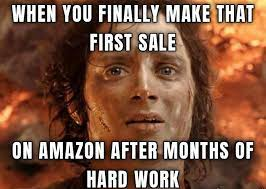
Red flags for businesses to keep in mind:
- Ventures that don’t make enough consistent money to manage it, so you end up with razor-thin profit margins (like ATMs).
- You give up too much control over your company’s future (such as when Amazon realizes you’ve got a great FBA product and takes over the market for you).
- Barriers to entry, like stocking up. This includes business ideas where you have to buy a ton of supplies to sell upfront (AKA what happens to retail stores, which stand a chance of getting stuck with useless inventory).
- Industries that carry high failure rates, massive competition, or low selling costs (restaurants, we’re looking at you).
- Things with massive startup costs (like the real estate expense of acquiring a hotel, which could take you years to recoup).
If you want more on the red flags, check out Codie Sanchez’s video below on businesses to avoid.
Invest in Your Next Business
Now you’re ready to make a shortlist of all your potential businesses to invest in. Whether you want to buy in as a partner or buy a business outright and become the sole owner, there’s sure to be something that piques your interest.
Finding something that fits your parameters and offers tons of possibilities isn’t too hard to do. But if you’re having trouble, we recommend you check out our guide to finding a business to buy.
By choosing a boring business already in operation, you could save yourself a lot of time, money, and hassle.
Putting all of your money into starting a brand new business is a risk. You don’t need to take on the stress of betting on a new model. Instead you can buy into an established business as a partner or take over an existing business and make it your own.




